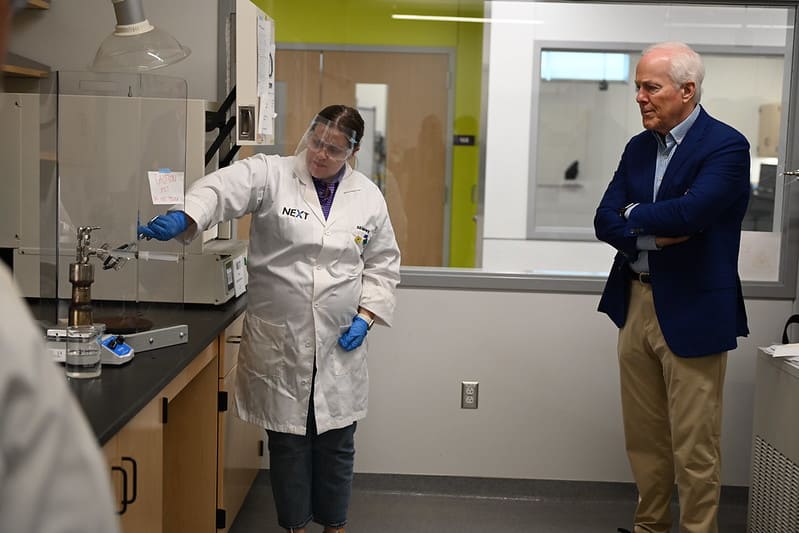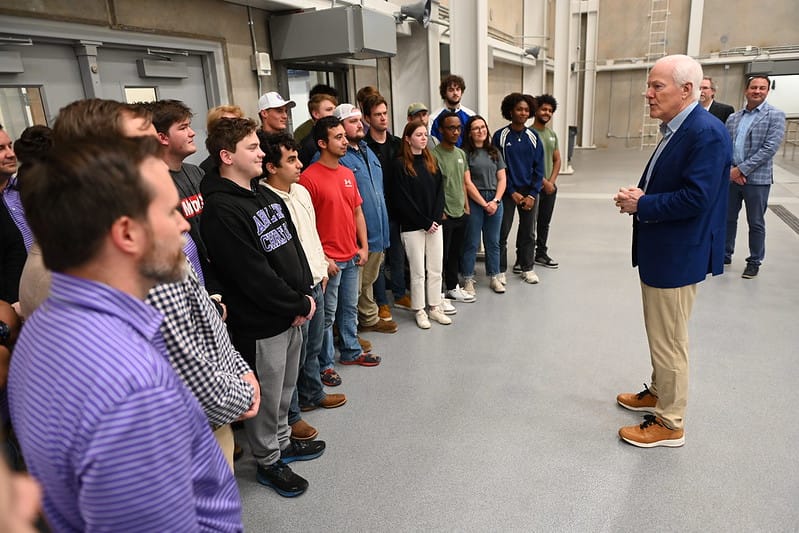Enlarge

U.S. Sen. John Cornyn visited Abilene Christian University’s Nuclear Energy eXperimental Testing Laboratory (NEXT Lab) April 2 to learn more about ACU’s research into advanced molten salt reactors, sponsored by Natura Resources.
Cornyn toured the new Dillard Science and Engineering Research Center where nuclear research is underway and where the reactor will be housed. He also met with NEXT Lab faculty and students, ACU president Dr. Phil Schubert, and representatives from Natura Resources.
“The research that’s being done here at Abilene Christian University’s Nuclear Energy eXperimental Testing Laboratory is nothing short of groundbreaking,” Cornyn said. “Perhaps the most exciting thing is that this is happening right here at Abilene Christian University in Abilene, Texas. These young people who are studying and contributing to this great research are at the beginning of their careers. We’re going to be depending on them to be the scientists and the leaders of the future. This is a great foundation for them to be able to work on something so important and cutting edge.”
Enlarge

The U.S. Nuclear Regulatory Commission (NRC) is currently reviewing the construction permit application for ACU’s molten salt research reactor. NEXT Lab expects to have the liquid-fueled molten salt reactor operational in 2026, which would make ACU the first university to host and own a molten salt research reactor.
“We need salt, and we need uranium, and that’s my assignment,” Cornyn said about what he will take back to Washington after learning more about the work of NEXT Lab and Natura Resources.
About NEXT Lab
The mission of ACU’s NEXT Lab is to provide global solutions to the world’s need for energy, water and medical isotopes by advancing the technology of Molten Salt Reactors while educating future leaders in nuclear science and engineering. NEXT Lab is advancing the use of molten salt, rather than water, as a coolant for nuclear reactors with the goal of designing and building the first university-based Molten Salt Research Reactor. Students work alongside faculty seeking creative solutions to complex problems, gaining real-world experience and seeing firsthand how innovation and collaboration can impact the world. NEXT Lab, powered by Natura Resources, provides extraordinary opportunities through ACU’s departments of engineering and physics, chemistry and biochemistry, and others. NEXT Lab employs more than 75 people, including 45 undergraduate students.
— Wendy Kilmer
April 9,2024
